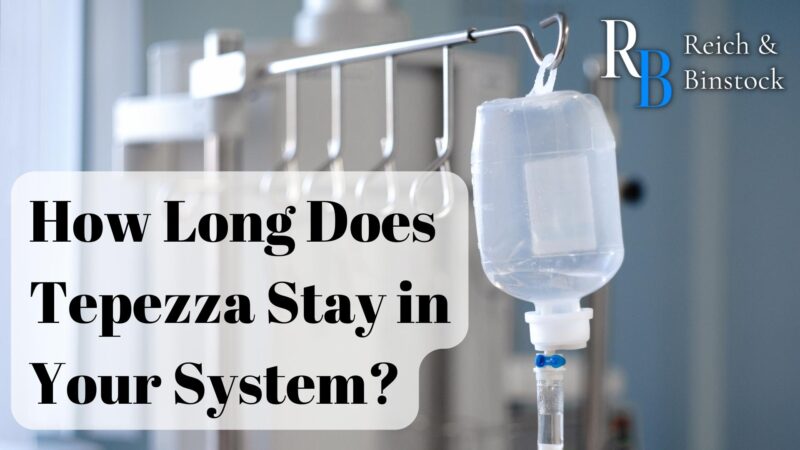INVOKANA INJURY LAWYER IN HOUSTON, TX
Home > Houston Personal Injury Lawyer > Houston Drug Injury Lawyers > Invokana Lawsuit
Invoking Lawsuit
The initial market reception for Invokana was overwhelmingly positive, as many people expected it to completely change the game for blood sugar management. However, this “miracle drug” caused numerous severe side effects, some of which weren’t on the label of the drug’s bottle. Unfortunately, many people suffered at the hands of this drug in the form of diabetic ketoacidosis, bone health problems, and even kidney failure. Beginning in 2018, the medical device company, Johnson & Johnson, settled Invokana lawsuit after lawsuit. This year, in 2021, they are expected to settle even more. Victims of this product need a qualified Invokana lawsuit attorney.
If you or a loved one suffered health problems or a wrongful death due to Invokana use, you need the Houston pharmaceutical litigation attorneys at Reich & Binstock. Every year, thousands of people suffer injuries or even death due to the use of prescriptions they believe to be safe. Misinformation, inadequate research, and many more factors contribute to this deadly problem. For a free consultation with a pharmaceutical litigation and medical malpractice attorney in Texas, call Reich & Binstock today. Contact our office at 713-622-7271.
What is Invokana Used for?
Generally, patients receive prescriptions for Invokana as a way to control high blood sugar in those with type 2 diabetes. Additionally, others with type 2 diabetes and heart disease to lower their risk of death due to stroke or heart attack. Finally, those with type 2 diabetes and kidney disease use it to lower their risk of dialysis, heart failure, and death from heart disease. This drug works by increasing the rate of blood sugar removal by your kidneys.
Why are People Filing Invokana Lawsuits?
When the FDA first approved Invokana for use in 2013, many people hailed the relative success of the drug. It helped many people to manage their type 2 diabetes in conjunction with diet and exercise. Many medical professionals and users praised its reduction of blood sugar levels, weight loss benefits, and lower blood pressure. Unfortunately for some, the drug’s side effects were extreme and catastrophic. Due to these side effects, the FDA now requires warning labels about potential developments, such as Fournier’s gangrene, on this dangerous product.
Legal claims in these Invokana lawsuits include that Janssen Pharmaceuticals, a manufacturer of the product, failed to properly warn patients of the dangerous side effects.
In fact, Janssen actually promoted the drug as perfectly safe for diabetic patients, and encouraged off-label uses for weight loss, reduced blood pressure, and improved cardiovascular function.
Nearly 1,200 users have filed lawsuits since 2013, many of which are still in the settlement process. Janssen’s lack of proper product labeling led to the consumers of Invokana being unable to make informed decisions about their use of the product.
If you or a loved one suffered injuries from Invokana, contact Reich & Binstock today for a free consultation with an Invokana lawsuit attorney.
Why Does Invokana Cause Amputations?
For diabetics, small cuts have the potential to turn into large problems. The reason is that small cuts, blisters, or sores could become dangerous ulcers. Unfortunately, these ulcers sometimes lead to the amputation of the affected lower limb. Even though, over the past 20 years, lower limb amputations in diabetics have decreased, there is still a risk. Invokana actually increases this risk of lower limb amputation in diabetics. But how much of a risk does Invokana actually pose? And why does it cause amputations?
The FDA only added a new warning label for the increased risk of leg and foot amputations to Invokana in 2017. This warning label followed two very important clinical trials (CANVAS and CANVAS-R), which both showed that leg and foot amputations occurred twice as frequently in patients using Invokana. Specifically, the study revealed that approximately 1 in 69 Invokana users would have a related amputation.
Unfortunately, the trials did not explain exactly why Invokana leads to a higher risk of amputation. One theory states that it might cause a patient’s blood to thicken, which leads to the pooling of blood in the foot. This poor circulation leads to gangrenous sores, which lead to amputation.
How Long Does Invokana Stay in Your System?
The maximum concentration of Invokana in your body occurs approximately one to two hours after ingestion. Physicians recommend taking this medication at the same time daily in order to reach “steady state.” Steady state usually occurs within four or five days of daily intake. Invokana’s half life, or the amount of time the drug takes to decrease by half, is approximately 10.6 hours for the 100mg dose. The 300mg dose has a half life of about 13.1 hours.
What are the Dangers of Invokana?
It’s difficult to cover the full range of Invokana side effects, dangers, and complications. Almost no medications come without some form of risk. However, Invokana’s history of poor labeling and consumer misinformation has secured its reputation as a dangerous drug.
Below, we outline the side effects, dangers, and complications associated with Invokana:
- Chronic yeast infections (vaginal or penile)
- Changes in urination or frequency of urination
- Nausea
- Fatigue
- Poor cholesterol
- Diabetic ketoacidosis
- Increased risk of leg and foot amputations
What Happens if a Non Diabetic Takes Invokana?
Because of the extreme risks associated with Invokana, it is not recommended for off-label use. What this means is that this product is not intended for use by those without type 2 diabetes. The two most common off-label uses are for 1) weight loss and 2) type 1 diabetes.
Below, we explain these off-label uses, as well as their risks and potential side effects:
- Weight Loss: Johnson & Johnson explored possible weight loss uses for Invokana back in 2016. Initial studies showed mild promise, but follow-ups showed that participants just ended up putting the weight back on. Off-label use carries the risks of chronic UTIs, yeast infections, and dehydration as its less severe effects. The most extreme side effect is its highly increased risk of lower limb amputation. Doctors once prescribed this dangerous medication for mild weight loss, and now face the consequences.
- Type 1 Diabetes: Invokana is only FDA-approved for use in type 2 diabetic patients, not type 1. However, some doctors still prescribe Invokana as a means to control blood sugar spikes after meals in type 1 patients. The side effects for type 1 patients, however, are even more life-threatening. These individuals are much more likely to develop diabetic ketoacidosis, or DKA. This happens when your body’s cells are unable to get the glucose they need for energy, and is potentially fatal. Therefore, many doctors caution against the use of this drug for type 1 diabetics.
What Compensation Can I Get from an Invokana Lawsuit?
Unfortunately, no attorney can tell you exactly what amount an Invokana lawsuit will award you. We can, however, explain what we take into consideration when valuing each case. Generally, courts award compensation for damages such as incurred expenses and pain and suffering. Additionally, some courts also award punitive damages when drug companies are found to be negligent.
Below, we outline some of the damages that courts award for an Invokana lawsuit:
- Hospital costs
- Surgical costs
- Pain and suffering
- Lost income or wages
- Future medical expenses
- Travel costs for medical visits
- Funeral or burial expenses (for wrongful death cases)
- Punitive damages
Filing an Invokana Lawsuit in 2022
If you or a loved one suffered injuries or illness as a result of Invokana use, you may be entitled to compensation. While this drug seemed at first like a “miracle” for those with type 2 diabetes, its reputation has since suffered greatly. To find out what compensation you’re entitled to, contact our pharmaceutical injury firm right away. At Reich & Binstock, we’ve represented all manner of clients for more than 30 years, and we’ll be happy to fight for your rights. For a free consultation, please call 713-622-7271 today, or visit our website.
There is never a fee unless we recover on your behalf.
Additionally, clients are not obligated to pay expenses if a recovery is not made.



















